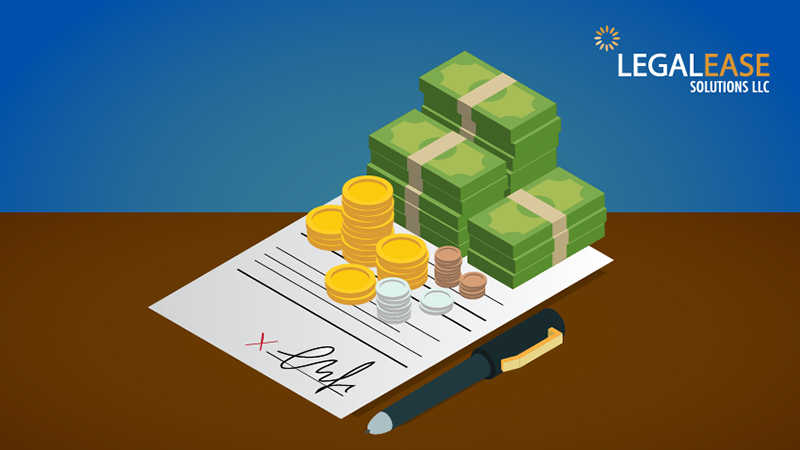Estate planning is the management and disposal of a person’s asset capital in preparation of his/her death or incapacitation.
Introduction
Estate planning isn’t confined to the distribution of one’s material and tangible assets, but extends to the transfer of especial resources such as one’s values, faith, education etc. to the devisee. To preserve individual and legacical assets, be they vast or modest, it is advisable to plan one’s estates, irrespective of their wealth or age.
“Estimates show that almost 70% of the population does not have a valid will.”
Wills are the most popular estate planning instrument used in the United States. However, estimates show that almost 70% of the population does not have a valid will.[1] There may be various reasons for an individual’s unwillingness to plan his/her estate. Some think they do not own or earn enough to warrant an estate plan, while others think they are too young to plan their estate. Some understand the importance of having an estate plan but find the process uncertain or intimidating. This white paper weighs the pros and cons of common estate planning instruments and serves as a guide to choosing the right one for yourself and your beneficiaries.
Summary
Not all assets pass from a will or through probate procedure. Usually, wills distribute assets, which courts of competent jurisdictions further discuss by means of probate proceedings. During this affair, the court appoints a personal representative named in the will to supervise and settle the estate. The court follows the same procedure in an intestate succession (distribution of assets without a will) according to the intestate succession rules of the state. By the use of a suitable estate planning instrument, an individual can 1) provide directions to pass over available assets, 2) take care of oneself in case of any disability, 3) appoint a guardian for his/her minor children, 4) support any member of the family who needs special care, 5) disburse funds to support loved ones who may be irresponsible with handling money, 6) provide life insurance to the family, 7) transfer business in case of death or disability, 8) disburse financial obligations etc. A strong estate plan also safeguards the estate against taxes on asset transfer after death. One of the most important aspects of this process is to identify the right estate planning instrument to suit one’s purpose, nature of assets, expected course of events, belief system etc.
Deciding on an estate planning instrument
With an appropriate plan, one can preserve wealth, support children and surviving partners, or donate his/her legacy to charity after death. One should make this choice based on the size of their assets, the number of beneficiaries, and the purpose of asset distribution.[2] To get the best benefit out of a person’s estate without unreasonable delay, one should properly plan the distribution of assets using the best suited instrument. This is possible by determining three factors: 1) Who should the plan benefit? 2) When should it benefit them? 3) And to what extent should it benefit them? Examining three of the most basic and widely used instruments- wills, trusts, and Power of attorney[3]– will help determine the right estate plan.
“Basic requirements for a legally valid will are the testator’s mental capacity to execute the will, terms in writing, testator’s signature and witnesses to the signature of the testator.”
Wills
A will allows the testator (one who writes the will) to express desire for bequeathing his/her real or personal property, such as real estate, vehicles, clothes, jewelry, and any item of value, to a specific individual or entity of his/her choice. Wills also function as an opportunity to display one’s liking for particular individuals by special bequest of assets, valuables and values.
A properly executed will is legally valid and prevents disputes between the testator’s survivors. It effectively distributes all assets to the beneficiaries without tax burdens, as per the testator’s wish.[4]A testator has the liberty to choose preferred terms to distribute assets, including settling of obligations through the assets and disinheritance of any individual who might have a right to the assets under intestacy laws of the state. However, some states prohibit disinheritance of spouses or minor children, and some others prohibit inheritance without blood relations.[5] Therefore, it is equally important that the will comply with the legal formalities of the pertinent state. Basic requirements for a legally valid will are (1) testator’s mental capacity to execute the will; (2) terms in writing; (3) testator’s signature; (4) witnesses to the signature of the testator.[6]
A typical will holds details of the testator’s estate, the devisees, instructions for care towards loved ones, gifts and/or charity. Some wills have terms forming a trust within the document to manage assets.[7] Estate planning uses two types of wills: Living Wills and Pour-Over Wills.[8]
- Living wills allow individuals to choose their preferred type of medical care upon incapacitation.[9] Unlike last wills which take effect after a person’s death, living wills become effective when the testator is incapacitated or his/her recovery from illness is impossible.[10] Living wills are also known as Health Care Directives.[11]
- Pour-Over Wills are wills that include a beneficiary and a living trust.[12] This simply means that the will “pours” all of the testator’s properties into a trust after his/her death. Here, the assets are subject to the distribution plan mentioned in the trust and benefit from its tax reduction provisions.[13] Combinations of living trusts and pour-over wills are widely used since they stave off probates and disputes.[14]
Wills are the most time-honored instruments of estate planning for several reasons. They are useful to all those who wish to bequeath valuables of any nature, and allow courts to authenticate them through probate proceedings after the death of the testator.[15] If a person dies intestate (without having a valid will), the court will distribute his/her assets according to the state intestate laws, which may be a delayed, costly, and complex affair.[16] Intestate laws may also impose tax burdens on the estate. Although laws often allow division of assets among surviving spouses or children, division among grandchildren or distant relatives also occur.[17] In such cases, blood relatives unbeknownst to the deceased or disliked by them, end up receiving a greater portion of the assets.[18] If there are no blood relatives, the court may hand over the estate to the government, instead of friends, loved ones or charity. Thus, wills reduce delays and disputes in asset distribution of deceased persons and ease post-death or post-incapacitation proceedings. That said, it is important to prepare a will with the help of experienced attorneys in specific jurisdictions to avoid ambiguity and will contests.
“People sometimes prefer trusts to wills, since it is possible to designate items as trust property and consequently evade taxes on them. “
Trusts
A trust is used to create a person’s rights towards another person’s property in order to benefit a third party.[19] It establishes a legal relationship between the grantor (the settlor or one who creates the trust), the person who manages the trust assets (the trustee), and the beneficiaries.[20] One may form a trust for the advantage of family, other individuals, charity, minors or even pets.[21] People sometimes prefer trusts to wills, since it is possible to designate items as trust property and consequently evade taxes on them.[22] Since state laws govern trusts, one must consult experts to create these documents as well.[23] A trust has five essential units:
- Settlor, Grantor or Trustor – an individual who forms the trust and transfers the trust property to the trustee.
- Property of the Trust – real, personal, tangible, or intangible property.
- Trustee – a person or an entity with the ability to maintain and distribute the trust property among the beneficiaries of the trust as per its terms.
- Beneficiary – a person or a group of persons, entity, minor or pet benefitting from the trust property. The existence of a beneficiary is not a requirement at the time of creation of the trust.
- Purpose – a valid and legal purpose is essential to form trusts. Typically, trusts serve the purpose of providing education and support, protecting assets, planning taxes, or making charitable donations.[24]
- Estate planning uses different kinds of express trusts. Some of the most common trusts are:
- Living Trust – This trust permits the settlor to create a trust benefiting another during his/her lifetime.[25]
- Testamentary Trust – The testator or settler uses this trust in wills to transfer assets into a trust as the “trust property” after the death of the testator (or settlor). Later, the trustee manages the trust property as per the terms of the trust formed in the will.
- Revocable Trust – The settlor has sole control over the trust, without any tax benefits. He/she can use the funds from the trust, and even alter or cancel the trust at any time.
- Irrevocable Trust – The trustee has sole control over the trust property. In such a case, the trust will not cease to exist until it fulfills its purpose. Alteration or revocation of the trust prior to fulfilling its purpose is possible only with the approval of the trustee and all the trust beneficiaries.
- Fixed Trust – The beneficiaries receive the trust property as per a schedule created by the settlor in the trust. A fixed trust does not allow the trustee any discretion to dispense property of the trust.
- Discretionary Trust – This trust grants power to the trustee to choose how and when to allocate the trust property to the beneficiaries. Such trusts provide substantial tax benefits to beneficiaries as they do not have any interest in the assets of the trust until their distribution. By selecting a suitable trust with the help of an expert, one can hold, manage, and distribute assets to the benefit of intended persons without the complexity of legal proceedings.
Power of attorney
Power of attorney is a document that states terms according to which a person may control certain aspects of another individual’s affairs. It acts as a health care directive to grant full control of an individual’s healthcare matters to the power holder until his/her death.[26] Such power holders may be the spouse, a family member, or a friend[27], who will take crucial decisions to meet the medical needs of the individual. Likewise, a financial power of attorney permits the power holder, who may be a third party, to manage the individual’s finances when he/she is unable to do so. A financial power holder can also designate another person to complete these tasks in an appropriate manner pursuant to the terms in the power of attorney.[28]Thus, these documents are important estate planning tools that one may use to prepare for incapacitation.
Estate plans for spouses
Estate planning for spouses depends on the amount of wealth each spouse holds and the number of children from prior relationships. It is incumbent on each spouse to dispose their independent assets in a self-determining and unrestricted manner subject to the minimum share of the surviving spouse.
Benefits of having the right estate plan
By adopting a proper estate plan, an individual can:
- Protect and manage assets.
- Make arrangements for one’s own benefit in case of incapacitation.
- Arrange for future expenses and support of family.
- Limit and plan estate taxes.
- Appoint guardians for minors and dependents.
- Disclose obligations to creditors and have a plan of disbursement.
- Appoint an executor to administer the estate as per the terms of the will.
- Provide information on the life insurance, IRA, and 401(k) to the beneficiaries.
- Make arrangements for one’s own funeral and related expenses.
Conclusion
Estate planning is a continuous process. A person can start planning one’s estate at a time when he/she is in possession of any kind of measureable assets. Estate plans may need to change as and when one’s priorities and desires change. Planning estate taxes, giving charity, using life insurance, and freezing asset value are other tools used in estate planning. A good estate plan can fend off unwanted litigation and financial burdens on one’s loved ones. Even if one has minimal assets, it is advisable to have at least one valid will to secure desired asset distribution and avoid unmerited gains.
References
[1,3,11,26]https://www.justia.com/estate-planning/
[2,4,5,7,8,10,13,14,17,18,20,21,22,23,24,25,27,28]Id.
[6, 16]https://www.justia.com/estate-planning/wills/
[9]https://www.justia.com/estate-planning/wills/living-wills-advanced-health-care-directives/
[12]https://www.justia.com/estate-planning/wills/pour-over-wills/



